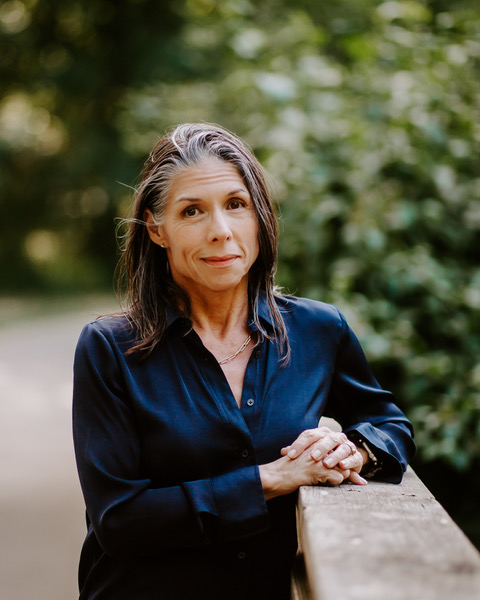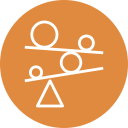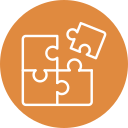What I would want
to know if I were you.
My story, my approach, and my promises to you.

My story.
I’ve been stuck in relationships, too.
There was a time in my own marriage when I realized: all the communication skills in the world weren’t helping us connect. I could stay calm, ask thoughtful questions, regulate my tone, and still feel miles away from the person sitting right next to me.
That kind of disconnection is disorienting, especially when you “know better.” And for someone like me (who had built a career around insight, strategy, and helping other people find their way), it was humbling.
I didn’t need more knowledge.
I needed a new foundation.
That shift didn’t just change my personal life; it reshaped my professional one, too.
I’ve spent decades working in high-stakes, high-impact spaces (law, public policy, leadership development, organizational strategy). I’ve coached executives, shaped statewide initiatives, and supported leaders from Oregon to Botswanna. My work has always centered around growth, communication, and systems. But beneath every success and struggle, one theme kept surfacing: relational challenges.
Disconnection. Misunderstanding. Patterns no one knew how to name.
When I turned my full attention to helping people strengthen their relationships, I didn’t do it casually. I studied, questioned, and tested. I looked at everything through the lens of someone who has walked through complexity, both personally and professionally.
It may help to know that I was raised in an interracial family in a small town, so I know what it’s like to feel different. As a parent in a blended family—and as an adult whose parents both repartnered—I understand how layered love and loyalty can be. And as someone in a long-term marriage, I know that partnership isn’t about perfection; it’s about growing, repairing, and returning to each other again and again.
In my experience—and in yours—context matters.
So do skills.
So does support.
Eventually, I found a single approach that holds all three. I’ll tell you more about it below, but here’s what you need to know now: it’s honest, it’s actionable, and it works—not just in theory, but in my actual, everyday life.
I use it in my own marriage, in hard conversations, and when I mess up. I share it with others now, too, those who are ready to stop pretending, stop spinning, and start building something stronger.
If that’s you, I’d be honored to walk with you.
My approach.
Relational Life Therapy (RLT) is a direct, practical, and deeply compassionate approach to relationship change. Unlike traditional therapy, which often stays neutral or unfolds slowly, RLT gets right to the heart of what’s not working—naming the patterns that cause disconnection and teaching the skills to shift them. Because it’s grounded in neuroscience and focused on action, many clients experience relief and momentum early on—sometimes even in the first session.
This approach helps couples move out of stuck patterns, repair damage, and work through resentment to build the kind of intimate, cherishing relationships we all deserve. It’s not always easy—but with courage and the right support, it’s absolutely possible. Here’s what RLT means for you:

RLT takes sides.
We don’t stay neutral when something is causing harm. Instead, we name the reactive patterns—gently but directly—and take the side of what’s healthy, honest, and relational. That clarity is often missing in couples work, and it’s a big part of what helps create real movement.
RLT teaches.
Insight alone doesn’t create connection. RLT gives you essential relational skills—like how to speak with clarity and warmth, how to repair after conflict, and how to finally stop doing the thing you promised yourself you’d stop doing. These are tools you can practice, and they really work.
RLT works—fast.
The habits that keep you stuck were wired through repetition—but that wiring isn’t permanent. With the right support and tools, you can create new, healthier ways of connecting that actually last. Many people start to feel meaningful change within just a few sessions.
What does it mean to be RLT certified?
Becoming certified in Relational Life Therapy (RLT) requires rigorous, hands-on training that goes far beyond a weekend workshop. Practitioners complete extensive coursework, including over 50 hours of instruction with RLT founder Terry Real, participate in special-topic trainings (like the neurobiology of relationships), observe live therapy sessions, and engage in supervised practice with direct feedback. The process is intentionally immersive—designed not just to build knowledge but to develop real, practical skills.
Is this for couples or individuals—or both?
Both. Whether you're working alone or with a partner, RLT helps you shift the way you show up in relationships. The focus is always on what you can do—because you can’t control anyone else. What you can do is learn to hold yourself and your partner in warm regard, even in hard moments, and choose new ways forward. Real change begins with you—and it ripples outward.
What kind of results can I expect?
I invite you to explore how RLT applies to your circumstances
My commitment to you.
I’ll be honest—with care and respect.
If something’s keeping you stuck, I can (and will) name it—with clarity, kindness, and zero judgment. Even the hard truths can be handled with respect.
I’ll be an active part of each session.
You won’t find me sitting back saying “hmm.” I’ll be right there with you—coaching, guiding, and helping you stay focused on what matters most. Clients often say I make the hard work feel surprisingly doable.

I'll never undervalue context.
Your relationship doesn’t exist in a vacuum. We’ll consider the broader systems—family, culture, community—that shape how you connect and where you get stuck.
I’ll keep things practical.
You’ll leave every session with something useful. Insight is important, but lasting change comes from what you practice—not just what you understand.
